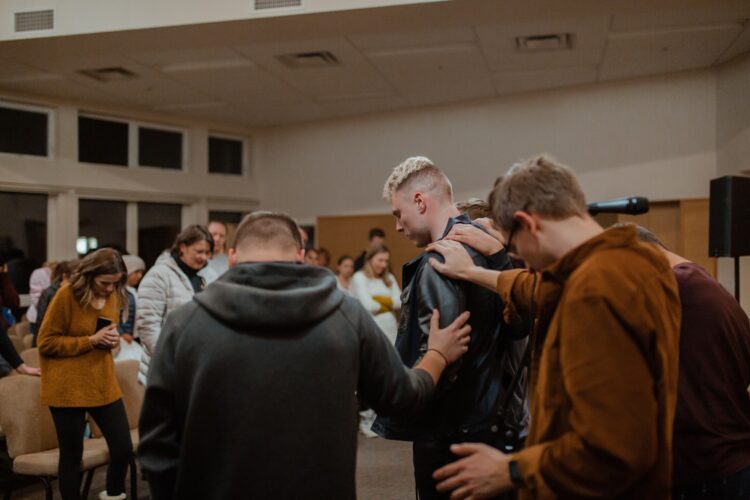Before Messianic Judaism in our lives from about 1970-1971, Patty and I were on a quest to ask, “What really is the nature of the Church?” This question came in a context where secular writers were ringing alarm bells on the social trends in America, the loss of the stability of place, friendships, extended family, and local neighborhoods. We were mere economic pawns in the system and we were allowing our lives to revolve around money and the ease of mobility for seeking greener pastures. The end of these trends was deep alienation and loss. Surely, we thought, the Church must have an answer to this problem. We were also very discouraged by what we experienced as we looked for a church and experienced only what I now call “Go to meeting church.” Sit down, stand, sing a hymn, have announcements, have a hymn, an offering, have a special music piece, have a sermon, an invitation, then a benediction, and go home. The special music might have been really special and the sermon quite good, but … but. “Where was the community?” We asked.
Then we discovered Acts 2:42 ff. and groups of people who believed that the local churches should build communities of relationships that last, like an extended family, and that these churches were the key to discipleship. Without committed lasting covenant relationships, discipleship would be greatly hindered. We had to be committed together to make disciples and to motivate one another to deeper discipleship. We anticipated the great teaching of Dallas Willard in his Divine Conspiracy, that one is discipled when he or she generally obeys the commandments of Yeshua. We have sought to apply this throughout our ministry. To mitigate against congregational hoping and moving away, we sought to encourage the people to only leave the community if convinced of the leading of the Spirit. Ultimately a person has to obey what he or she thinks the Spirit is saying. However, to put a governor on this and the human ability to rationalize carnal desires, we asked all to test what they said the Spirit was saying and to seek confirmation with their closest friends and leaders. Ultimately it was their decision without any negative onus. This has worked well for us for over 49 years. We found that a Messianic Jewish pattern of life was greatly helpful in community building.
Today there is a new movement that adds to our knowledge of discipleship in community. One of our leadership couples in Tikkun America, Daniel and Berilyn Gillespie encouraged us to look into it. The leaders of this movement teach that without bonding in a community where all embrace mutual encouragement and correction, discipleship does not usually take place. This movement grew out of a ministry in Pasadena, California, the Shepherd’s House. The center of the teaching of Shepherd’s House is that the heart is the key to discipleship, not just the head or intellectual content as is the emphasis of many churches. They call this right-brain discipleship. To make sure we avoid philosophic materialism, I like to speak of it as right-brain/soul or heart since all that we see in the brain exists in another dimension in the spiritual realm. A simple introduction for understanding this teaching is the book The Other Half of the Church by Michael Hendricks and Jim Wilder. In his last years, Dallas Willard embraced Shepherd’s House and the organization that grew out of it, Life Model Works. This is now growing into a movement including networks of congregations. The goal is quality discipleship. This takes place by developing bonded relationships of love and kindness, hesed, in Hebrew. This leads to a community where the habits of the heart are in accord with the Word and Spirit. It is a community where the love of enemies prevails and the narcissism in all of us is overcome.
It has never been my goal to build big or to build small but to build faithfully with the people God brings into our sphere of responsibility as elder shepherds. God’s concern is twofold. One is the quality of discipleship in community, that is what happens to people connected in our congregations. The second is the ability of the congregation to reach out in love to those who do not know Yeshua and draw them into the community. When we think of ministry to the Jewish people, there are so many of our people that are wounded, confused, and hurting. We can be a loving community of healing for our people. This kind of community will draw them through love that is real.
